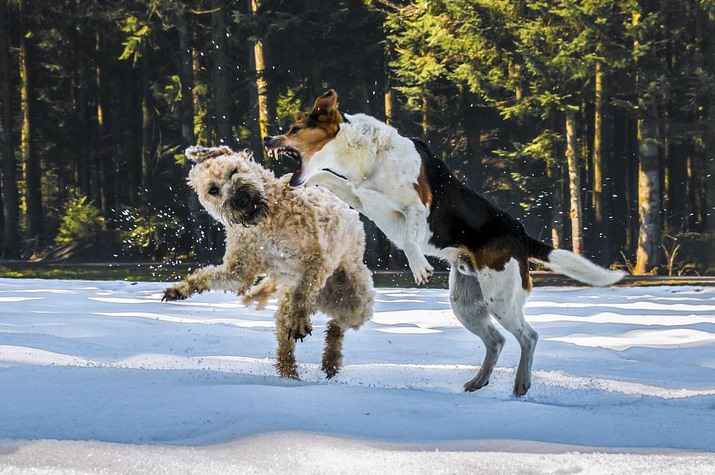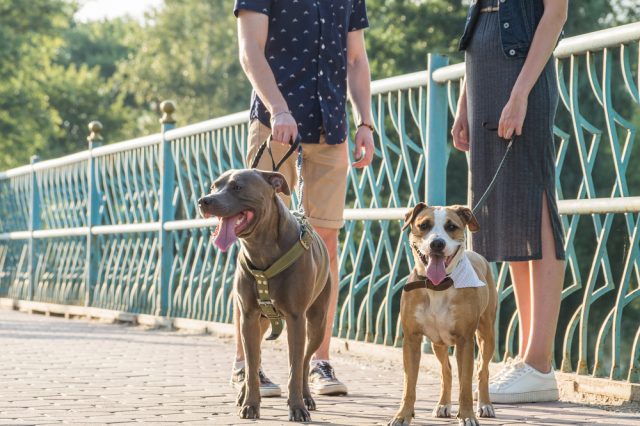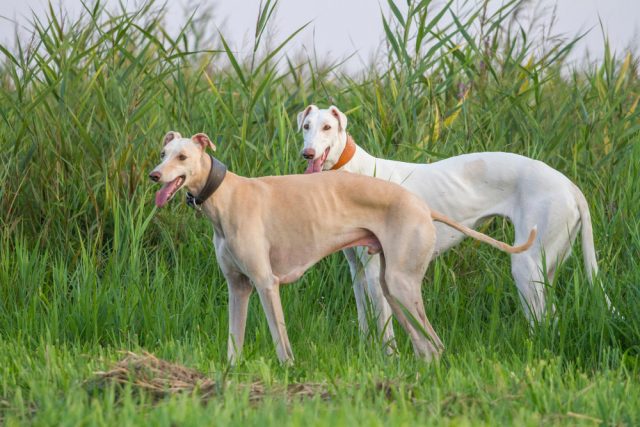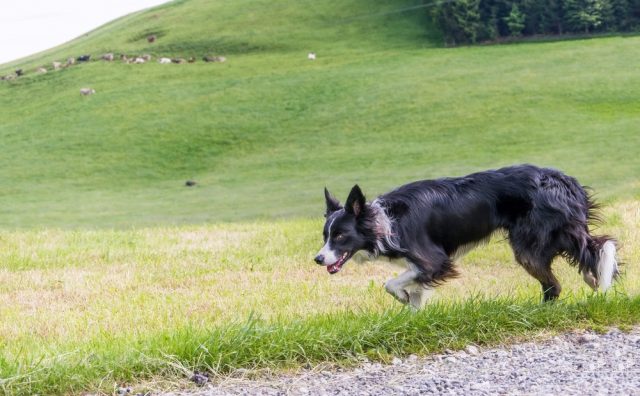Many people can seamlessly add a new dog to their family. Others have dogs that flourish in a single-pet environment. Each dog is an individual, but there are certain breed-associated characteristics that can affect how they relate to one another. Having been selectively bred for these characteristics over multiple generations, some breeds are more dog-friendly than others.
As with humans, canine personalities tend to be the result of nature and nurture.

If you are considering adding a dog to your household, or just want your dog to make friends, it is important to have a little basic breed knowledge. (Plus, it’s fun to learn about our dogs and where they came from.) By examining the histories of a few common breeds, we can learn which ones have a predisposition for canine conflict.
Bully Breeds
Any bulldog or Pitbull-type dog may have come from lines of dogs that were chosen to be tough. Some may have been originally bred for fighting rings, and some were bred for bull baiting (which was eventually outlawed), hence the name. Sometimes, the traits that made them ideal for their ancient professions can make them difficult to get along with other dogs. Not every bulldog is dog-aggressive. In fact, many get along wonderfully with dogs of all sizes and even smaller pets. However, if your dog has bully blood, it is wise to tune in to his body language around other dogs.
Terriers
Terrier-type dogs were originally bred overseas for hunting. Their temperaments are tenacious, which makes them better at their jobs. They could hunt prey like rats and rabbits (and even badgers) both in burrows and in chase. They are plucky and independent by nature, and sometimes these characteristics can make them less amenable to other dogs. Dogs that are smaller than they are can trigger their prey instincts, and larger dogs seem to bring out the worst even more. I have treated countless Schnauzers and terriers for attacking larger dogs or just not backing down when attacked themselves. Perhaps any dog that can handle a badger has to have no sense of his own vulnerability!
Sight Hounds
Sight hounds (like Greyhounds and their crosses) can bicker with other dogs. Racing greyhounds wear basket muzzles with other dogs to head off these altercations. They can become agitated by the excitement of the chase and nip at one another. Perhaps it is a competitive nature or maybe smaller dogs remind them of their favorite prey, rabbits. Greyhounds and other sighthounds usually fare well with known members of their family group. It is not the norm for a greyhound to have issues getting along, but it is always smart to know your own dog and err on the side of caution with new dogs around because it can happen.
Herding Dogs
Dogs from the herding group are known for their intelligence, agility, and strong work ethic, often bred for their ability to control and move livestock. While individual temperaments can vary, herding dogs are generally sociable and amiable, making them well-suited to get along with other dogs. These breeds often exhibit a cooperative and friendly nature, which can contribute to positive interactions in multi-dog households or social settings. Most skirmishes occur when herding dogs give in to their instincts and try to herd their fellow canines.
Hunting/Retrieving Breeds
Hunting and retrieving dog breeds, such as Labs and Golden Retrievers, are known for their intelligence, agility, and strong work ethic. In general, these breeds tend to get along great with other dogs, especially when socialized from a young age. Their training and purpose often involve collaboration with other dogs, making them inherently sociable. However, these dogs also tend to be fiercely loyal and loving towards their humans, so conflicts can arise if they feel they have to compete with another dog for your affection.
Pocket Pups
Small dog breeds can vary quite widely when it comes to compatibility with other dogs. While individual temperament plays a crucial role, these breeds are generally sociable and can form harmonious relationships with dogs of different sizes and breeds. Chihuahuas, despite their tiny stature, are known for their bold personalities and may start conflicts with dogs many times larger than themselves. However, like most small-breed dogs, they can coexist peacefully with larger breeds if given the proper socialization training.
What can you do to encourage your dogs to get along?
Proper socialization and training play crucial roles in shaping the behavior of all dog breeds. Overall, with proper introductions and training, most dogs can form strong bonds and enjoy harmonious relationships with their canine companions.
It is very important to remember that your dog might be inclined to certain tendencies. Still, it is not absolute, and every dog is an individual, formed by not only his breeding but also his environment and training. The key is being very aware of your dog and the environment. If you are tuned in to the body language of dogs, you can wisely head off problems before they begin!
Love dogs? Want to learn more about them? Click here and follow me on Facebook.



